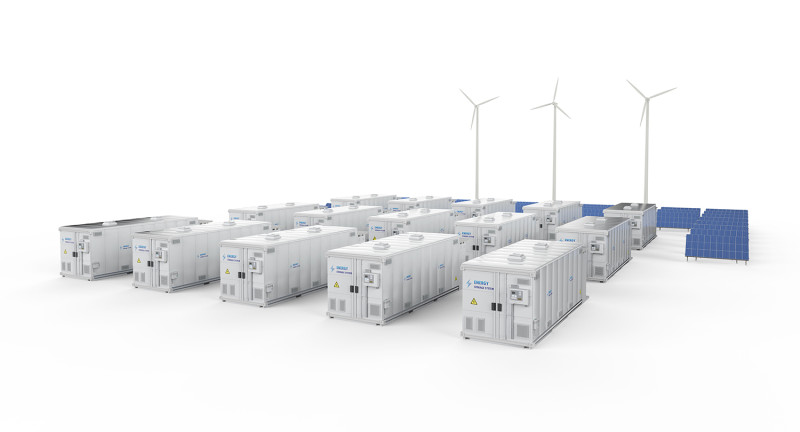Battery energy storage can reduce the carbon footprint and energy bills for any kind of business. That said, the bigger your current energy bill, the bigger your savings will be.

Our Battery Energy Storage Systems (BESS) projects are pioneering advancements in energy technology, focusing on the development and deployment of innovative storage solutions to meet the growing demands of a sustainable energy future. These projects are dedicated to enhancing the efficiency, reliability, and scalability of battery storage systems, which are crucial for integrating renewable energy sources, stabilising the grid, and ensuring energy security.
By leveraging cutting-edge research, state-of-the-art materials, and advanced engineering techniques, our BESS initiatives aim to drive the transition towards a more resilient and sustainable energy infrastructure. We are committed to delivering impactful solutions that support a cleaner, greener, and more energy-efficient world.
A telecoms company reached out to Dale Power Solutions to see if we could help them capture the excess renewable energy they were producing.
The need
With 88KW of solar PV on their rooftop, their generation far outweighed their energy consumption.
As things were, they sold their excess back to the grid for 5.5p per KWh.
But the company had a need for energy after 4pm - during the most expensive time of the day. That meant they paid 25p per KWh for any energy they bought from the grid after this time.
Dale’s solution
To solve this problem, we proposed a 50KW / 100KWh battery energy storage system. This would capture all the excess solar energy generated during the day.
By storing this energy instead of selling it to the grid, the company could use the generated energy for free.
The result
Our new design meant huge reductions in energy bills for this telecoms company. They went from buying 773.5KWh in electricity per day to just 221.KWh.
The BESS allowed the company to buy electricity during the cheaper night time rates. This, along with their stored solar generated energy, meant their bills reduced significantly.
The added bonus? Not only did they benefit from cheaper bills, they got to reduce their CO2 emissions too.
Energy bought from the grid at night is largely made up from greener, renewable sources like solar and wind. Energy bought during the day, when demand is much higher, comes mostly from unsustainable sources like fossil fuels.
By accessing energy overnight and storing it for use the next day, you can come off grid when it’s most expensive. And reduce your carbon footprint too.
A telecoms company reached out to Dale Power Solutions to see if we could help them capture the excess This forged steel product producer was spending £1.1 million on electricity every year across their two locations. They reached out to Dale for help.
The need
Because this company had two locations, their needs were complex. One site had significantly higher consumption during the most expensive time of day for buying electricity from the grid.
But both needed a way to access electricity during off-peak hours for cheaper bills and energy from cleaner sources.
Dale’s solution
We analysed the consumption data from both sites over a 24 hour period. What we found is that the two sites had different purchase profiles.
Because of the differing needs of the sites, we sized two separate battery energy storage systems for this customer.
We calculated how much energy each site currently purchased at more expensive times of day. This helped us to size a BESS with enough capacity to store energy overnight to meet their needs.
The result
For one site, we were able to displace 80% of their daytime energy purchases. The lower consuming site required a 1.4MWh system. And the higher consuming site needed a 3.2MWh system.
Our design team, in collaboration with our manufacturing partners, structured two small containerised systems for Site 1. And three individual 1.1MWh systems for Site 2. Both included full inverter commissioning, cabling, transformer connections and civil works.
This customer gains a significant reduction in their energy bills. And we expect these reductions to remain between 9% and 34% depending on the time of year and their consumption levels.
We were also able to offer full off-balance sheet finance for this project. This meant the capital cost of the equipment was paid for completely by the monthly energy bill savings. Even with these repayments, the customer was showing a positive cash-flow from the first month of installation.
The company’s CFO never had to draw from any capital budgets. The system paid for itself.
The safest battery energy storage systems on the market?
A nationwide coverage with over 80 Engineers providing over 150,000 hours of planned maintenance visits per year across over 10,000 assets in the UK
A way to get much cheaper energy and a way back to business growth?
Cleaner, greener energy for a much smaller carbon footprint?